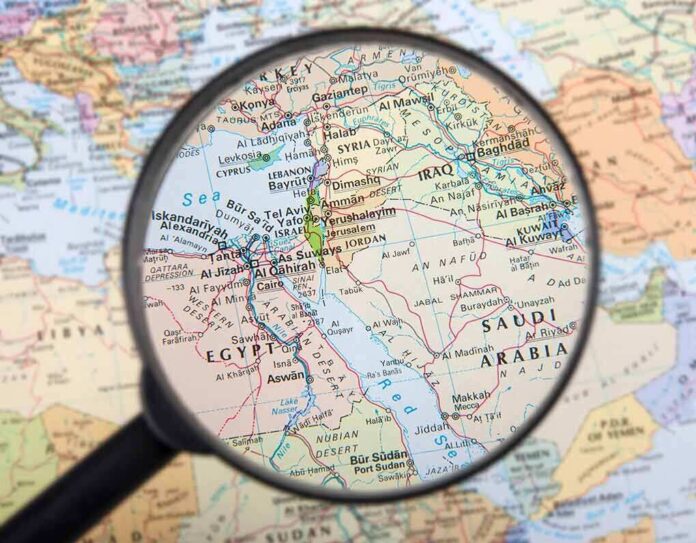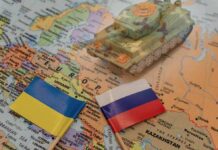
Cyprus unveils a groundbreaking plan to pay Syrian migrants to return home while allowing breadwinners to keep working in Cyprus for three years, creating a potential model for other nations struggling with migrant crises.
Key Takeaways
- Cyprus is offering one-time payments of 2,000 euros per adult and 1,000 euros per child to Syrian families willing to return to Syria
- The innovative program allows the main income earner to remain in Cyprus with a special work permit for up to three years
- Families must withdraw asylum claims or give up international protection status to qualify for the program
- Syrian nationals make up the largest group of asylum-seekers in Cyprus, putting strain on the small nation’s resources
- The program runs from June 2 to August 31 and could become a template for other European countries facing similar migration challenges
A Pragmatic Approach to Migration Management
Cyprus has launched a first-of-its-kind initiative offering financial incentives to Syrian families willing to return to their homeland, while simultaneously addressing economic concerns by allowing primary breadwinners to remain employed in Cyprus. The program, announced by Deputy Minister for Migration Nicholas Ioannides, represents a practical solution to the overwhelming influx of migrants that has strained the small Mediterranean nation’s resources. With Syrian nationals constituting the largest group of asylum-seekers in Cyprus, this initiative directly targets a significant portion of the migrant population that has put immense pressure on the country’s infrastructure and social services.
“This new program is a targeted, humanitarian and realistic policy that bolsters Syria’s post-war transition to normality,” said Nicholas Ioannides, Deputy Minister for Migration.
The program provides a one-time payment of 2,000 euros for one adult and 1,000 euros for each child to facilitate resettlement in Syria. Families must apply between June 2 and August 31, and crucially, they must drop any pending asylum claims or rescind international protection status to qualify. This requirement ensures that participants are genuinely committed to returning home rather than maintaining a foothold in both countries, preventing potential exploitation of the system designed to provide legitimate humanitarian assistance.
Balancing Economic Stability and Repatriation
The most innovative aspect of the Cypriot program is the provision allowing the family’s main income earner to remain in Cyprus with a special residency and work permit for up to three years. This thoughtful approach recognizes the economic realities facing returning families and provides a transitional period during which they can maintain financial stability while rebuilding their lives in Syria. The breadwinner can freely travel between Cyprus and Syria throughout this period, ensuring they can participate in family matters while continuing to earn income in Cyprus’s stronger economy.
“Cyprus will offer Syrian families money to help them resettle back in their homeland and allow the main income earners to remain on the island nation for up to three years to work as part of a voluntary repatriation program, a Cypriot minister said Thursday,” stated a Cypriot minister.
This strategic approach stands in stark contrast to the blanket asylum policies often promoted by leftist governments, which typically create permanent dependency rather than encouraging self-sufficiency and eventual repatriation. By facilitating return migration while ensuring economic stability, Cyprus has developed a model that prioritizes both humanitarian concerns and national interests – a balanced approach sorely lacking in many Western nations grappling with unsustainable migration pressures and the resulting strain on taxpayer-funded social services.
A Model for European Migration Management
Cyprus’s initiative could serve as a template for other European Union nations struggling with overwhelming migrant populations. The program acknowledges the reality that many asylum seekers ultimately desire to return to their homelands once conditions improve, but need financial support and stability to make that transition possible. Unlike open-border policies that create permanent demographic shifts and financial burdens on host countries, this approach offers a path to repatriation that benefits both the migrants and the host nation.
While international organizations have criticized Cyprus for its 2009 agreement with Syria to return rescued migrants, the island nation has maintained its sovereign right to control its borders. Cyprus officials have consistently denied engaging in illegal “pushbacks” despite pressure from globalist institutions that often prioritize unrestricted migration over national sovereignty. This repatriation program represents a constructive middle ground – offering voluntary return with dignity and financial support rather than forced deportation or permanent resettlement.
As President Trump works to address America’s own border crisis, Cyprus’s innovative approach demonstrates that nations can implement migration policies that are both humane and firmly grounded in national interest. By encouraging voluntary repatriation while providing transitional economic support, Cyprus has created a potential roadmap for responsible migration management that respects both human dignity and national sovereignty – core conservative principles that should guide immigration policy worldwide.












